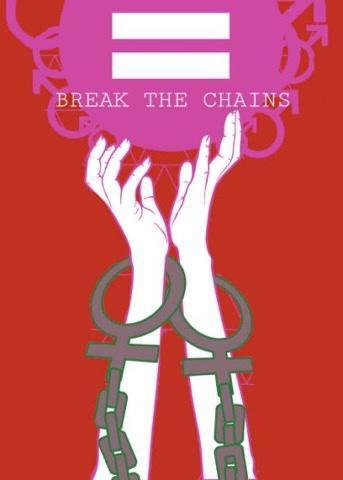Now we have to shape what some have started calling; The Church at Home. Although I keep asking myself; What do those who do not have a home do? For this reason, at the same time, I am declaring today in our Holyrood Church a Lenten day of prayer, fasting and reading the Bible in the Time of the Coronavirus.
Jesus' inclusion of the woman

Good morning, happy Friday, and many blessings.
In this gospel (Matthew 19:3-12), the Pharisees engage Jesus on the notion of marriage about which there was much controversy. All agreed that a man could divorce his wife. The dispute was about the grounds on which a man could divorce his wife. To be clear, the woman could not do the same.
Anyway, Jesus ministry in Galilee is over and he is nearing Jerusalem when a Pharisee pops the question: "Is it lawful for a man to divorce his wife for any cause?" A question debated in the Rabbinic schools of Hillel and Shammai. The formulation of the question suggests there are some situations when a man may divorce his wife. There is no mention of the woman’s rights!
The school of Shammai demanded infidelity on the part of the wife to declare a divorce. The school of Hillel appealing to Deuteronomy 24 suggests that divorce may take place “because he finds something objectionable in her.” This was used to justify divorce for as trivial a reason as a poorly prepared meal, or snoring!
In my opinion, one of the teachings behind this biblical narrative is gender equality. Very particularly in a relationship with another person. Hence the next two questions: Does the Bible really teach gender equality? Why has gender inequality been the norm? Gender equality is a state of being in which men and women are treated equally by being given the same social rights, same social responsibilities, and same access to social goods and opportunities as each other.
Gender equality ensures that both males and females have access to the same rights and are viewed as equals by society at large. For example, His first miracle was done at the request of His mother (John 2:1–11). He revealed Himself as the Messiah to the Samaritan woman at the well (John 4:25–26). When He rose from the dead, He first showed Himself to the women who had come to His tomb (John 20:11–18; Matthew 28:1–10; Mark 16:1–8; Luke 24:1–12).
A lot of the biblical laws regarding women were in place because they lived in a society in which women were viewed as less valuable than men. The laws were made to protect women from some of the complications brought about by cultural gender inequality. If we look at Jesus' life, we will notice that Jesus Himself treated all people as equals, regardless of social status or gender. It is important to note that Jesus treated women as equals, counter to the cultural norms at the time.
In this whole matter of marriage and divorce, it seems to me that Jesus is very clear with his theology of justice. First of all, at no time is he trying to validate the heterosexual relationship as the only model of union.
And on the other hand, for him gender equality is not only a fundamental human right, but a necessary foundation for a peaceful, prosperous, and sustainable world. In Jesus radical ministry, women are entitled to live with dignity and with freedom from want and from fear. Gender equality is also a precondition for advancing development and reducing poverty: Empowered women contribute to the health and productivity of whole families and communities, and they improve prospects for the next generation.
Blessings
Fr. Luis+
- Log in to post comments
